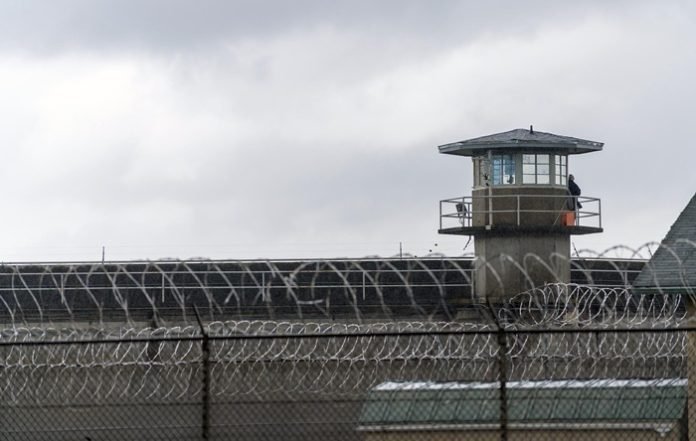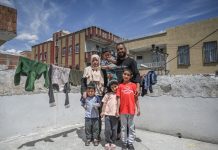A recent visit by the Turkish Human Rights and Equality Institution (TİHEK) to Maltepe L-Type Prison has revealed severe overcrowding and poor living conditions, highlighting the systemic issues plaguing the country’s penal institutions, the Birgün news website reported.
The TİHEK report states that Maltepe Prison, designed for an increased capacity of 1,760 inmates, currently houses 2,188 detainees.
The overcrowding has forced some inmates to sleep on the floor, with some wards originally intended for 28 inmates now accommodating over 40. During the inspection, TİHEK officials found one ward with 43 inmates, 13 of whom were sleeping on the floor, and another with 45 inmates, including 15 sleeping on the floor.
The lack of space extends to personal storage, with many inmates unable to store their belongings in the lockers provided. The report also noted that the beds were old and worn out, further exacerbating the discomfort.
TIHEK was established in 2016 by the Turkish government to monitor human rights violations, prevent torture and mistreatment and ensure the right to equality of all members of society. However, it has been harshly criticized for failing to fulfill its mandate of investigating allegations made by prisoners.
Former TIHEK chairman Süleyman Arslan was slammed by activists for saying minors at the age of 15 were entitled to get married. The organization also sparked outrage in 2019 for targeting the LGBTQ+ community during a symposium titled “The Protection of Family.” During the symposium a speaker said homosexual relationships threatened Turkish family values and that such relationships should be banned.
According to Council of Europe reports, Turkey has the highest prison population in Europe. The findings of the TİHEK report align with these statistics, underscoring the chronic overcrowding in Turkish prisons. The ruling Justice and Development Party (AKP) in 2022 allocated 8.7 billion lira for the construction of 36 new prisons in the next four years. The number of Turkish penal institutions will increase to 419 this year with the opening of 20 new prisons. There were 403 prisons in the country as of June 2024.
The overcrowding crisis has been a growing issue since 2005, with prison populations swelling annually. As of April 1, 2024 the number of detainees and convicts stood at 322,780, significantly exceeding the capacity of 295,702 across 403 penal institutions. This includes 45,717 detainees and 277,063 convicts, with 13,561 women and 2,912 children among them. The report stresses that despite a release recently legislated by parliament that temporarily reduced numbers, the prison population rebounded sharply, increasing by 71,679 in just seven months.
The report also highlighted hygiene issues, with only one washing machine available for the entire prison. This machine is reserved for children and sick inmates, forcing others to wash their clothes by hand, which has led to an outbreak of scabies that remains uncontrolled.
Complaints of mistreatment have also been documented. The Presidential Communication Center (CİMER) received 16 complaints in the past year alleging torture and ill-treatment by staff members. Despite these complaints, an internal investigation concluded that no disciplinary action was necessary.
The TİHEK report pointed out several other problems, including the lack of human rights and communication training for staff, along with no training on the prohibition of torture and ill-treatment.
Torture in custody and prisons is a systematic problem in Turkey about which local rights groups, parliamentarians and state authorities receive hundreds of complaints every year. Earlier this year, the Parliamentary Assembly of the Council of Europe (PACE) adopted a resolution that expressed concern about an increase in alleged incidents reported from Turkey in past years.
In addition, there were reports of insects in the wards and inadequate pest control. Cameras in isolation cells were capturing footage of toilets, and the fluorescent lights in these cells posed a risk to inmates seeking to harm themselves.
Furthermore, laundry being dried in corridors worsened ventilation issues in already crowded wards, and there were no designated wards for sick and disabled inmates, with inadequate bathroom facilities lacking grab bars.
According to the annual report of the Human Rights Foundation of Turkey (TİHV), instances of physical abuse, arbitrary disciplinary actions and degrading treatment at Turkish prisons, long notorious for torture and ill-treatment of inmates, have seen a significant rise, particularly since a failed coup in 2016 and a subsequent state of emergency. The report details numerous cases of physical and psychological abuse, exacerbated by overcrowding.















